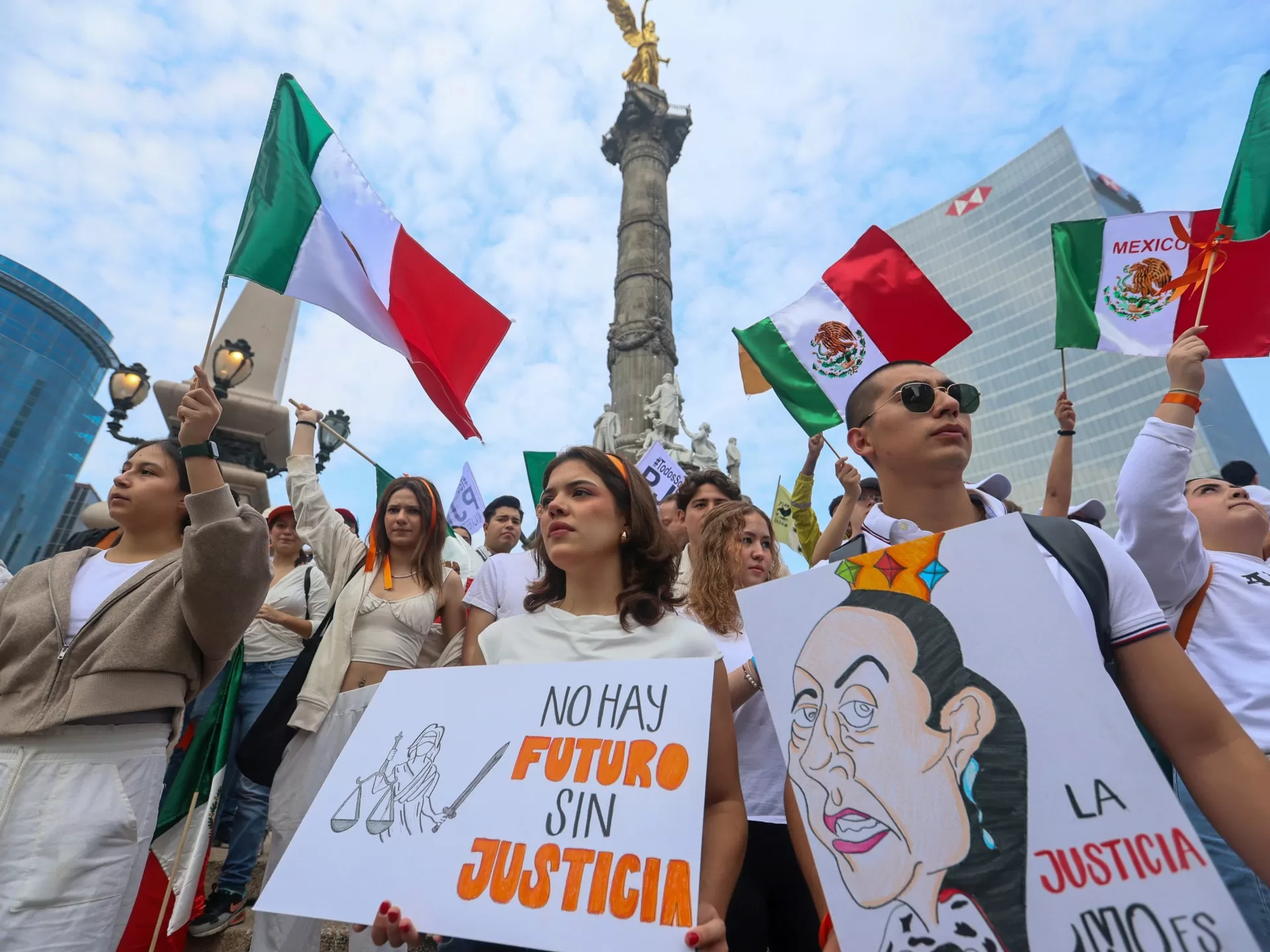The reform, which would see federal judges elected by popular vote, should be enacted on Sunday, the Mexican president says.
Mexican President Andres Manuel Lopez Obrador has said the judicial reform package that he championed should be enacted on September 15, after a majority of state legislatures approved the overhaul.
The announcement on Thursday came just hours after lawmakers in the country’s Senate approved the bill, which would see federal judges elected by popular vote, among other changes.
The reform, which Lopez Obrador sought to enact before he leaves office at the end of the month, had previously passed in the lower chamber of Mexico’s legislature, known as the the Chamber of Deputies.
Lopez Obrador’s Morena party has a supermajority in that chamber and is just one seat shy of a supermajority in the Senate.
Speaking during his daily news conference, Lopez Obrador said the bill had cleared the final hurdle for a constitutional change: It had been approved by 18 of the country’s 32 state legislatures.
“The reform to the judiciary has already been approved,” Lopez Obrador said, adding it “would be good” for the law to be published in the government’s official gazette on September 15. The date is one day before Mexico celebrates its Independence Day.
Opponents of the bill — including thousands of federal judges, magistrates and court workers — have been protesting against the overhaul for weeks. The move will make Mexico the world’s first country to allow voters to elect federal judges at all levels, including the Supreme Court.
Protesters say the move will erode the judiciary’s independence, as the widely popular Morena party is expected to hold outsized influence on the election of judges for years to come. Critics have framed the changes as part of a broader shift towards “autocracy”.
During the Senate debate on Wednesday, hundreds of protesters stormed the chamber with pipes and chains, chanting, “The judiciary will not fall” and “Mr Senator, stop the dictator!”
The International Bar Association, Human Rights Watch and several of Mexico’s top trading partners have also raised concerns over the reform. Legal experts have criticised the effort for failing to address the root causes of the corruption that has plagued the criminal justice system for years.
Lopez Obrador, who maintains widespread popularity despite reaching the limit of his six-year term, has said the reforms are needed to create “authentic democracy” in Mexico and stem the influence of criminal gangs.
Speaking on Thursday, he said the law will assure that Mexican citizens are able to directly elect their three branches of government: the executive, legislative and judicial.
